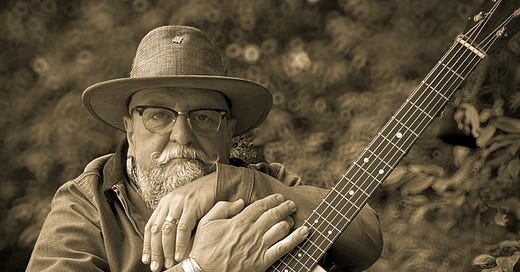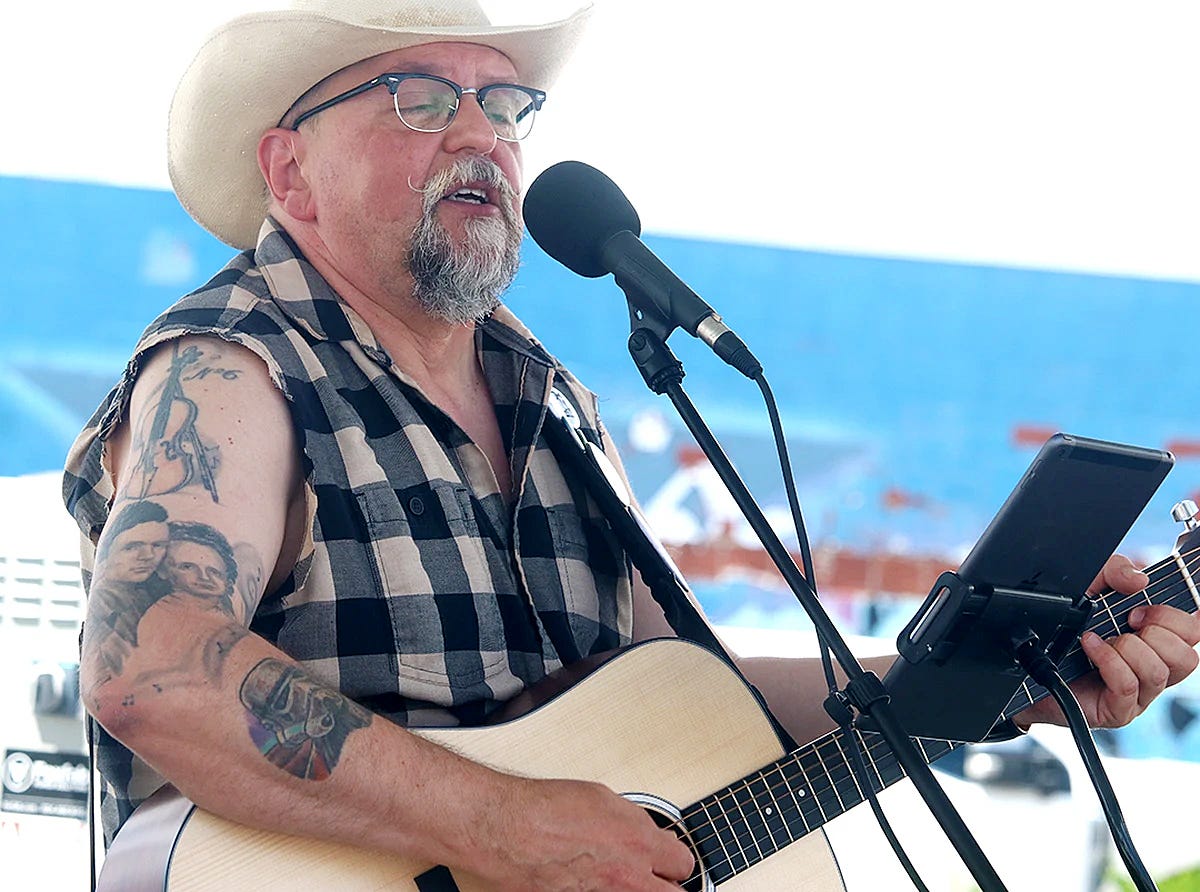In Praise of the Singer/Songwriter
Just an acoustic guitar, maybe a harmonica, and an original song. To me, there's nothing better.
The only difference between a poet and a singer/songwriter is the guitar. This is the Internet, so I will also say that includes a piano, a fiddle, a mandolin, a banjo, and I’ve watched the great Willi Carlisle perform with just a pair of rhythm bones, a harmonica and his voice. Either way, the impact is visceral.
Lately, I’ve discovered myself immersing myself in solo artists who are recording with nothing but an acoustic guitar. When I say immerse, I truly mean it. I’m never a halfway kind of guy when it comes to my interests. Of course, the journey begins with Bob Dylan. I mean, right from Hammond’s Folly and the 1962 self-titled album to The Freewheelin’ Bob Dylan, The Times They Are A Changin’, Another Side of Bob Dylan, Bringing It All Back Home, Highway 61 Revisited, and Blonde on Blonde. The last couple are the beginnings of his electric music, but they are still fantastic, which will bring me to John Wesley Harding and Nashville Skyline.
I am obsessed with the courage to go in front of a crowd of strangers and perform music with just you and your instrument. You don’t have the luxury of having a band around you that can hide a myriad of errors. If it happens to you, it’s for all to see and hear. I love singer/songwriter music and performances, and I am also living the “starving artist” life. That’s not a complaint. It’s the truth. At senior citizen age, finding employment is few and far between - if at all! You’d be amazed at what you can live on if you forego some of the extras. So, I leaned into my skills and began my media company, Morin Street Media and decided to record without a full band and just myself. Doing my recordings was all I could afford, so I got the best gear I could manage and went at it.
The next part of my journey brought me to Woody Guthrie. Those songs opened my mind up to how songs written almost seventy to eighty years ago are still as powerful and relevant as they were then. Guthrie wrote about the average person, the everyman, the worker, and the dispossessed. These songs drove movements, protected jobs and made folks pay attention to the worker. Even today, this song is still relevant.
I don’t mind reading, but with my ADHD, comprehension can be a challenge. Instead, I love watching documentaries and audio books. I often watch a documentary or listen to a book with a notebook. I don’t want to miss some of those nuggets, so I jot them down. Ken Burns is my favourite documentarian and his series, Country Music, isn’t just about country. It covers the story of folk music too because they are intertwined. I was definitely in love with this music I was not around to enjoy. I’ll have to remedy that, so I continued my search.
The Country Music documentary told the story of The Carter family and their discovery by Alan Lomax and Ralph Peer. The music is rooted in the traditional music of the mountain people and was the spark that lit country music. To the guitar players that love the technical challenge of playing without tying their fingers in a knot would work on some of the flat picking of Mother Mabel.
Then there’s Pete Seeger. I’ve always know about Pete, but now I was really going to try and know him. A great place to start is the documentary about his life, Pete Seeger: The Power of Song. He was schooled in the traditional music and worked with Guthrie, Dylan, Alan Lomax and the rest. He was a 100% acoustic musician. Just him and his banjo, or guitar. He didn’t mind rock music, he just didn’t like that the lyrics were difficult to understand with the electric arrangements. He was correct. The mixes were putting the music forward and the vocals were just behind. Then, some singers, in an effort to distinguish them from other vocalists, adopted unique styles that often had the lyrics not articulated properly. There’s a reason many of Elton John’s songs have mispronounced lyrics.
That’s the first part of the journey. Listening to and learning about this early folk music, or music of the people, sparked me to write my own songs. The songs I listened to also told me to write and sing about all the injustices in the world and let people know enough is enough. When you write songs like that, you certainly can make your life interesting. Maybe one day one of my songs will strike a chord with people and they’ll share it to underscore their feelings on the world.






